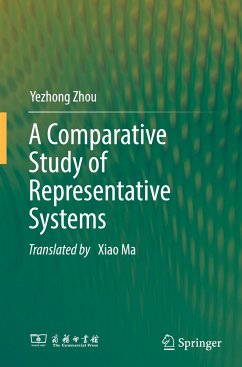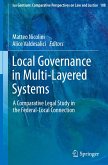This book demonstrates the social and historical conditions for the existence and development of the representative system and uncovers the laws dictating its occurrence, development and operation. Due to the barriers of language and cultural communication, the understanding of democracy differs in western and Chinese cultures, which leads to many misinterpretations and even bias. The book displays the merits and drawbacks of different forms of democracy on the basis of a comparative study of the different representative systems and argues that different representative systems can co-exist side by side and that the selection of the appropriate form of democracy must reflect the actual conditions in a given country. Therefore, a blind evaluation or criticism is unreliable.The book could provide good opportunities for western scholars to see how the Chinese scholars understand democracy and the representative system, help the westerners to understand the forms of democracy with Chinese characteristics and rationality of the socialist people's representative system, grasp the true essence of Chinese Constitution and democracy and give up their bias towards China for a better communication and mutual understanding. This book constructs a theoretical framework for studying the representative system and provides a solid foundation for its further research, promoting the improvement and development of constitutional jurisprudence. Even today, the comparative study of the basic theories, system building, and operation of the representative system are of great theoretical significance and practical value in the Chinese political development and reform.The book is primarily intended for graduates and scholars in the areas of constitutional jurisprudence on China and abroad. It is a must-read for constitutional researchers and those who want to know the essential differences between Chinese and Western constitutional jurisprudence.
Bitte wählen Sie Ihr Anliegen aus.
Rechnungen
Retourenschein anfordern
Bestellstatus
Storno








